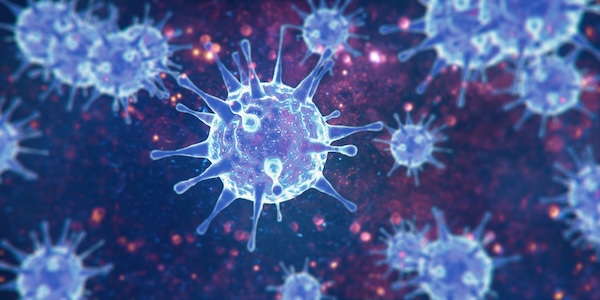To all professionals dedicated to the art and science of patient care:
Welcome to the CVMS Bulletin -
This is the weekly update from the Coastal Virginia Medical Society containing short news clips relevant to your medical practice and your career. It is your window into what's really happening in Medicine today.



Shrinking Number of
Physician-Scientists
The number of physicians who also are engaged in research is dropping rapidly according to recent literature. 30 years ago, 4.7% of American physicians were also involved in research. Currently that percentage is down to 1.5%.
Why is this happening?
One reason is that federal government grants are drying up and becoming increasingly competitive.
Secondly, there is a lack of mentorship in training programs that previously fostered the development of physician-scientists. This is linked to the fact that senior physician scientists have less incentive to mentor younger physicians. There is greater reward for them to become managers and committee chairmen in order to please hospital administrators. This holds more value in their careers then mentorship.
Also, physician researchers typically earn less than clinicians despite the fact that they have more responsibilities. This leads to burn-out and ultimately attrition.
How can we fix this?
Some academic centers are better at retaining physician-scientists then others. If a medical center values the importance of these researchers they will provide a better environment for them such as establishing mentorship committees, creating criteria for promotion and career advancement based on their mentorship, protecting their research time, improving pay equity, and supporting researchers when there are caps in federal funding. Some countries allow medical residents to have three years of research time after their second year of residency.
if we are unable to address this problem now, we will soon fall behind other countries in our ability to innovate new medical ideas and techniques.
"The Emerging Physician-Science Crisis in America,"
by Aadel Chaudhuri, MP, PhD, Jan. 26,2024, Medscape.
Shrinking physician-scientists
Garrison, Ley, FASEB Journal Abstract, March 29, 2022
CVMS Is Creating a
Charitable Foundation

Making a Difference in
Eastern Virginia
Coastal Virginia Medical Society has just this week applied for the development of a nonprofit 501(c)3 Foundation to provide charitable support for healthcare in Eastern Virginia. Our charitable missions will include medical scholarships, local medical research support, patient and provider advocacy, financial assistance for mental health treatment, community healthcare services, and other worthy causes. This is in keeping with our goals of improving healthcare in this area. But it will require the support of our medical community, philanthropists, corporate sponsors, donations, and grants. We will let you know when we can begin accepting tax-deductible donations.
Is Sugar Related to RLS?
There are recent reports in the literature that intake of sugar seems to be at least one cause of the syndrome known as RLS (Restless Leg Syndrome). There have been thousands of articles written about this condition over the years, yet we still have very little understanding of what causes it or how to treat it. Dopamine agonists, like ropinirole and mirapex seem to help. but they have to be taken on a regular basis to work, not PRN. Here is another anecdotal article adding to the recent mix seeming to indicate that RLS occurs after eating a lot of sugar and doesn't occur when the sugar intake is restricted. This is not evidence but more of a suggested association.
Sugar and RLS
Statins may Lower Risk of
Dementia in CHF Patients
Statins have been blamed for lots of things over the years including diabetes, liver disease and even dementia. This study helps to dispel at least one of those potential associations.
A research team in Hong Kong, China found that statins may have neuroprotective effects in addition to their ability to lower cholesterol. In this study, statins appeared to lower risk of multiple types of dementia including vascular dementia by 18% and Alzheimer's dementia by 28%.
the researchers suggested the potential mechanisms may be related to the cholesterol lowering effect which may help prevent the plaques in the brain characteristic of Alzheimer's. High cholesterol levels have been associated with an increased risk of dementia, so lowering those levels maybe helpful and reducing dementia.
Statins also have the ability to reduce chronic inflammation and improve endothelial function. In addition they have been found to have antioxidant properties period
oxidative stress is known to contribute to the development of dementia.
Of course, more research is needed to understand exactly how they work.
Statins lower risk of dementia
How AI Could Improve Healthcare for ALL
 AI can use data from large multicenter healthcare systems. The data is already there. We just have to get AI to analyze it for us in a meaningful way.This may be one of the few actual benefits that come out of big healthcare systems.
AI can use data from large multicenter healthcare systems. The data is already there. We just have to get AI to analyze it for us in a meaningful way.This may be one of the few actual benefits that come out of big healthcare systems.
How AI Could Result in Better Care for All
A Collection of articles from JAMA regarding AI
How Long COVID Affects
Immunity and Clotting Abnormalities
 About 10 to 20% of patients with Covid develop continuing symptoms beyond three months after onset. A new study comparing blood samples from these Long Covid patients with those of healthy patients suggest an abnormality of the immune complement pathway and the blood clotting pathways even after six months. Changes have been found in certain molecules in these immune and blood clotting pathways which may help in diagnosing Long Covid. Therapies targeting these pathways could help treat this condition.
About 10 to 20% of patients with Covid develop continuing symptoms beyond three months after onset. A new study comparing blood samples from these Long Covid patients with those of healthy patients suggest an abnormality of the immune complement pathway and the blood clotting pathways even after six months. Changes have been found in certain molecules in these immune and blood clotting pathways which may help in diagnosing Long Covid. Therapies targeting these pathways could help treat this condition.
In addition, researchers from the Amsterdam University Medical Center have found mitochondrial abnormalities that may be associated with other symptoms reported with long Covid, including malaise, brain fog, and profound fatigue.
Immune system and clotting abnormalities found in Long Covid patients

We hope you enjoyed this issue of the CVMS Bulletin.
Any opinions expressed here are those of the author(s) and not necessarily representative of any other member or Board member, or anyone else affiliated with Coastal Virginia Medical Society (CVMS). Any decisions, recommendations, conclusions and/or consensus approved by the Board or by the CVMS Membership will be stated as such in the newsletter.
Thank you for subscribing and reading this newsletter. Please feel free to comment or respond to the articles as you wish on the "Contact Us" Page. If you wish to write your own article for the Bulletin, please do so and send it to cvmedsoc@gmail.com
Editor, Author: Dr. Greg Warth
Additional Authors, Contributors: Dr. Alexandria Peck Berger, Dr. David Archer, Dr. Jerome Blackman
|





 AI can use data from large multicenter healthcare systems. The data is already there. We just have to get AI to analyze it for us in a meaningful way.This may be one of the few actual benefits that come out of big healthcare systems.
AI can use data from large multicenter healthcare systems. The data is already there. We just have to get AI to analyze it for us in a meaningful way.This may be one of the few actual benefits that come out of big healthcare systems. About 10 to 20% of patients with Covid develop continuing symptoms beyond three months after onset. A new study comparing blood samples from these Long Covid patients with those of healthy patients suggest an abnormality of the immune complement pathway and the blood clotting pathways even after six months. Changes have been found in certain molecules in these immune and blood clotting pathways which may help in diagnosing Long Covid. Therapies targeting these pathways could help treat this condition.
About 10 to 20% of patients with Covid develop continuing symptoms beyond three months after onset. A new study comparing blood samples from these Long Covid patients with those of healthy patients suggest an abnormality of the immune complement pathway and the blood clotting pathways even after six months. Changes have been found in certain molecules in these immune and blood clotting pathways which may help in diagnosing Long Covid. Therapies targeting these pathways could help treat this condition.